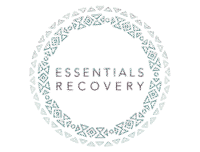Recovery from substance use isn’t just about completing a treatment program—it’s about building a new way of life. While detox and rehab are critical first steps, maintaining sobriety requires long-term commitment. That’s where aftercare support plays a vital role. Aftercare offers ongoing resources, guidance, and support to help individuals maintain their recovery and avoid relapse. It bridges the gap between treatment and independent sober living, creating a safety net during a vulnerable time.
What Is Aftercare Support?
Aftercare refers to the continuous care and support individuals receive after completing an initial phase of addiction treatment. This support may include outpatient counseling, support groups, sober living environments, 12-step meetings, mentorship, and more. The goal of aftercare is to prevent relapse by helping individuals develop coping strategies, establish structure, and remain connected to a recovery-oriented community.
Aftercare is not a one-size-fits-all approach. It is often customized to fit a person’s unique needs, life circumstances, and goals. Whether it involves regular therapy sessions or ongoing peer support, aftercare gives individuals the tools they need to continue growing in their recovery journey.
The Connection Between Aftercare and Relapse Prevention
Addiction is a chronic condition, and relapse is a common part of the recovery process. However, proper aftercare significantly lowers the risk of relapse. When individuals have access to continuous care and a supportive network, they are more likely to maintain sobriety.
Aftercare helps individuals identify and manage triggers, avoid high-risk situations, and develop healthier habits. It keeps recovery top-of-mind and ensures there is a plan in place for challenges that may arise. People in early recovery often face stress, anxiety, cravings, and social pressures. Aftercare support offers ongoing education and encouragement to navigate these hurdles without returning to substance use.
Types of Aftercare Services
Aftercare services come in many forms. Understanding the options can help individuals and families choose the right mix of support.
Outpatient Counseling
Ongoing therapy sessions with addiction counselors, psychologists, or licensed social workers can be essential. These sessions may focus on emotional healing, behavioral change, coping mechanisms, and goal setting. For those managing co-occurring mental health disorders, continued psychiatric care is crucial.
Support Groups
Programs like Alcoholics Anonymous (AA), Narcotics Anonymous (NA), and SMART Recovery offer peer-led support in a safe, nonjudgmental environment. Regular meetings help individuals stay accountable, build connections, and share experiences with others on the same path.
Sober Living Homes
These structured residences provide a substance-free environment where individuals can gradually transition back into everyday life. Residents typically follow house rules, attend meetings, and contribute to the household, all while continuing their recovery.
Alumni Programs
Many treatment centers offer alumni services, which may include follow-up calls, check-ins, social events, or workshops. These programs keep individuals engaged and offer a continued sense of belonging.
Life Skills Training
Learning how to manage finances, find employment, maintain healthy relationships, and take care of daily responsibilities can empower individuals and reduce relapse risks. Many aftercare programs offer training or referrals for these services.
Case Management
A case manager helps coordinate different services, including housing, employment assistance, healthcare, and legal support. This type of personalized assistance can remove barriers that might otherwise disrupt recovery.
Creating a Personalized Aftercare Plan
No two recovery journeys are the same. A personalized aftercare plan ensures that each person’s needs are addressed with the right level of care and support. This plan typically starts during inpatient treatment and is created in collaboration with clinicians and counselors.
A strong aftercare plan may include a weekly schedule of therapy, group meetings, medication management, and self-care activities. It should also outline strategies for handling stress, avoiding relapse triggers, and maintaining accountability. Plans should be revisited and adjusted as life circumstances change.
The Role of Family and Community in Aftercare
Support from loved ones can make a powerful difference in recovery. When families are involved in aftercare—through counseling, education, or participation in family support groups—they become better equipped to support their loved one without enabling unhealthy behaviors.
Community resources also play a critical role. Local organizations often offer free or low-cost support services, ranging from mental health clinics to job training programs. Religious institutions, recreational centers, and libraries may also host support meetings or events that provide connection and purpose.
The more an individual is surrounded by a positive, sober network, the more likely they are to remain engaged in their recovery and avoid isolation.
How Aftercare Supports Long-Term Goals
While early recovery focuses on staying sober day-by-day, aftercare shifts the focus to long-term success. Aftercare support encourages people to set goals for education, employment, relationships, and personal development. As individuals meet their milestones, they build confidence and see the tangible rewards of staying sober.
Aftercare also helps people manage unexpected life events—such as the loss of a job, the end of a relationship, or health issues—without turning to substances. Resilience is built over time, and aftercare is the structure that supports that growth.
Furthermore, people who stay connected to aftercare programs often become role models or mentors to others in recovery. This sense of purpose and community further reinforces their own sobriety.
Common Challenges in Aftercare and How to Overcome Them
Even with the best plan, challenges can arise in aftercare. Some people may feel they’ve “graduated” from recovery and no longer need support. Others may experience burnout or have trouble accessing services due to transportation, time, or financial constraints.
It’s important to recognize that aftercare isn’t a sign of weakness—it’s a sign of strength. Continuously engaging in support systems demonstrates commitment to health and well-being. When challenges come up, flexibility and communication are key. Telehealth appointments, virtual support groups, or mobile recovery apps can offer convenience and accessibility.
Another common challenge is the stigma associated with continued recovery. Society often expects people to “move on,” but ongoing care is just as normal as follow-up visits after surgery or ongoing therapy for mental health. Combating stigma with education and advocacy helps normalize the need for aftercare.
Measuring Success in Aftercare
Success in recovery is not just about staying sober—it’s about improving quality of life. Positive indicators may include stable employment, healthy relationships, emotional regulation, and a sense of purpose. Aftercare provides the tools and environment for these achievements to flourish.
Success also involves developing self-awareness and the ability to ask for help when needed. People in successful aftercare programs learn to recognize warning signs of relapse and take proactive steps to stay on track.
Recovery is not a linear process, and setbacks may occur. However, with a strong aftercare program, individuals are more likely to bounce back quickly and continue progressing.
Conclusion: Staying the Course with Aftercare
Recovery is a lifelong journey that requires dedication, support, and the right resources. Aftercare is not just an extension of treatment—it’s an essential component of sustained sobriety. It empowers individuals to continue growing, handle life’s challenges, and build a fulfilling, substance-free future.
Whether it’s weekly therapy, peer support meetings, or sober living arrangements, aftercare provides a foundation of stability and encouragement. By investing in aftercare, individuals give themselves the best chance at long-term success. Recovery doesn’t end with treatment—it begins there, and aftercare ensures it continues. Call us today at 855-509-1697.



